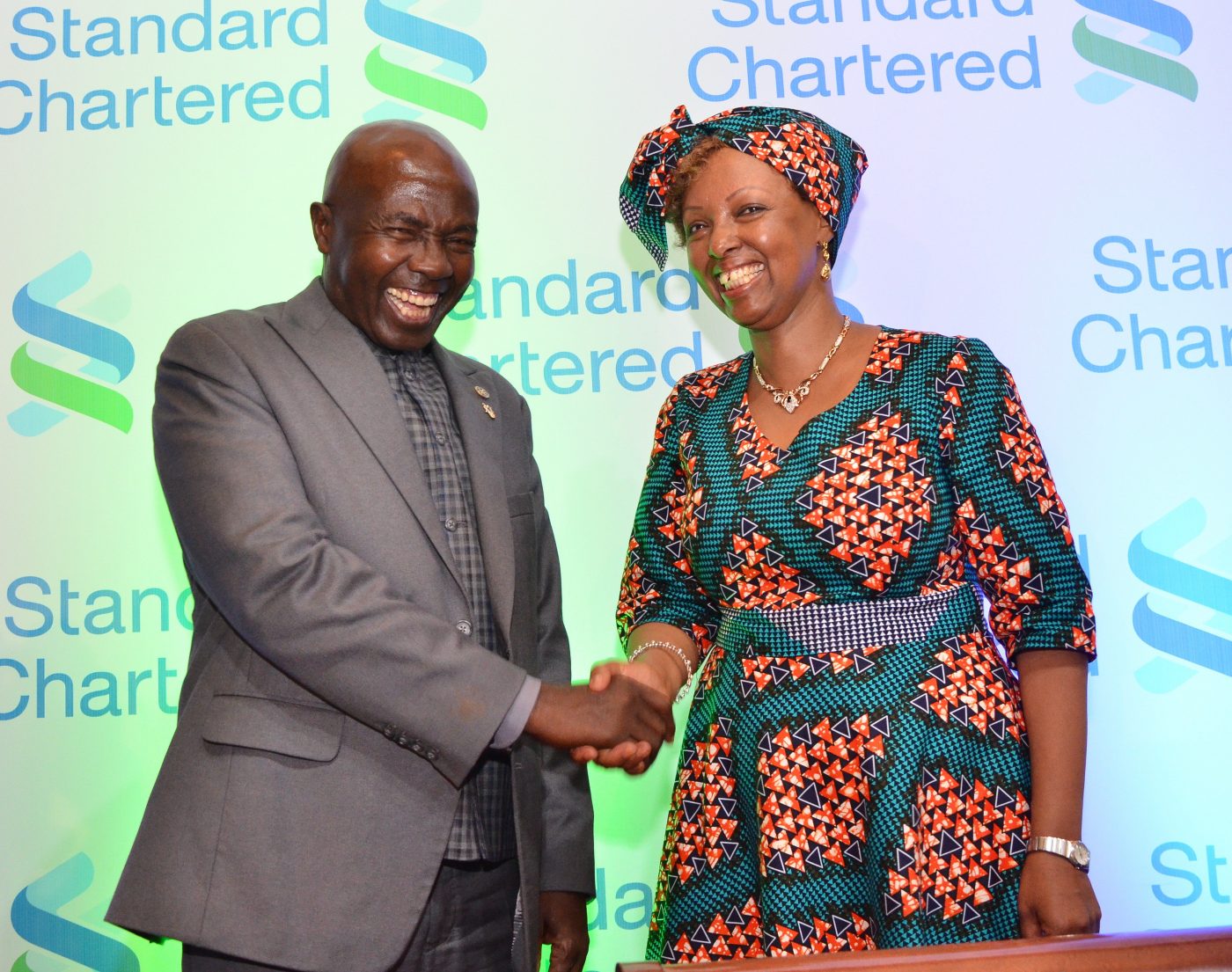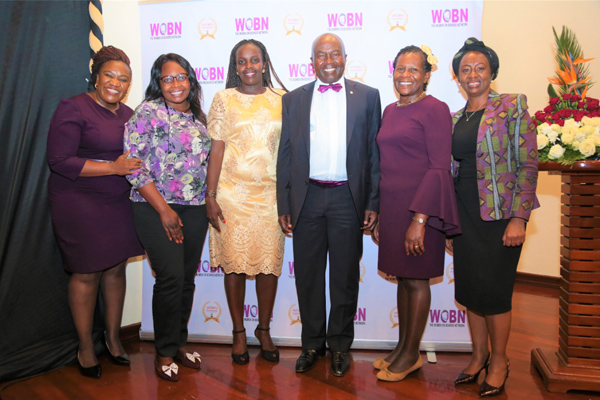#17
Patrick Obath
CHAIR OF BOARD NATIONAL OIL CORPORATION OF KENYA
The Authentic Chairman
Patrick Obath is an experienced Board Chairman with over 35 years of business experience, having joined the oil industry in 1976. Since retiring from the oil industry, Patrick now describes himself as a Professional Director, striving to do things better for the organisations he has had the privilege to serve in. Patrick wears many hats, and currently leads eight boards spanning across different sectors of the economy. He is serving as Board Chairman for Adrian Kenya, the KEPSA Foundation, Kenya Markets Trust, National Oil Company of Kenya, Java, PZ Cussons and the Africa Alliance Investment Bank. Patrick also serves as Vice Chairman at the Trade Markets East Africa and as a director in other FMCG and technology companies.
Patrick is also a private consultant and advisor in the energy, engineering and the extractive industries sectors, and in the areas of leadership, governance and sustainability.
What drives Patrick Obath to devote so much of his time and energy to steer all these organisations to greatness? Being a leader of leaders is what defines Patrick. According to a survey report published by the Harvard Business Review on how to be a good chair, the role is guided by the principle of measuring the board’s effectiveness through its inputs (https://hbr.org/2018/03/how-to-be-a-good-board-chair). Needless to say, this is a key attribute held by Patrick. In the various Boards he leads, Patrick’s input is manifested through being a stickler for good corporate governance, the promotion of diversity and being a champion for sustainability.
Corporate governance refers to how a board directs and manages an organization by taking account of the impact of decisions on its employees, customers, suppliers, communities, regulators and shareholders. It is said that corporate boards are responsible for providing oversight, insight and foresight. This is a tall order in today’s environment, which has become so complex and volatile.
According to renowned UK businessman Sir John Harvey-Jones, who was the Chairman of Imperial Chemical Industries from 1982-1987, “If a company is successful, it is due to the efforts of everyone in it, but if it fails it is because of the failure of the board. If the board fails it is the responsibility of the Chairman, notwithstanding the collective responsibility of everyone. Despite this collective responsibility, it is on the Chairman’s shoulders that the composition and performance of that supreme directing body depends”.

How do you ensure that you remain a chairman who will guarantee the long-term success of your company? Patrick’s response is that one must promote agility, and have a good understanding of the company’s operations as well as of the sector and of the business environment. Patrick further states that as a Board Chair, one must be fully committed to the company and maintain the board’s strategic focus by dwelling on giving strategic direction to the organisation through the Chief Executive Officer. During a board talk series hosted by the Women on Boards in which Patrick was a keynote speaker, he stated that as a Board member you have the right to disagree – but with the subject matter, not the people, bearing in mind that you are exercising a fiduciary duty.
The basic duty of every organisation is to earn stakeholder trust. Organisations need to strengthen their governance around stakeholder commitments so as to drive long-term value creation. Patrick states that boards need to engage by embedding their purpose into their strategy, and ensure accountability through appropriate metrics and the dynamic measurement of stakeholder impacts. Prioritising competing interests requires aligning strategic goals through stakeholder assessment. Boards must have mechanisms in place to engage with stakeholders, and to bring their voices into boardroom debate. This is a sure way of earning trust and credibility.
Patrick is a passionate advocate of board diversity and cultivates a broad spectrum of demographics in the boardroom. This is evident across his current Board Chair roles in which he promotes strong female representation in the various boards he chairs. It is why the Women on Boards Network honoured him with the Male Champion of the Women’s Agenda Award in its recent inaugural awards day.Boards play a pivotal role in driving the long-term sustainability of businesses. Given the likely negative effect of climate change global businesses, Patrick’s commitment through his Board Chair role is to ensure that long-term sustainable development becomes an integral component of strategy.

The key questions he poses are these:
- How are climate and environmental challenges affecting the business?
- Do we have a complete overview of the investments that the company will have to make in the years ahead to reduce emissions?
- How has our board helped to prioritise different climate and sustainability initiatives?
- Are we handling both the challenges and the opportunities posed by the rapid changes in technology?
The Covid-19 pandemic has further exposed the vulnerabilities of businesses in the face of a global threat and has laid bare long-standing sustainability issues relating to health and safety, supply chains, equality, access to economic opportunities and health care. Boards are the ones to lead and influence the sustainability agenda and translate it into strategies that empower and incentivise the management’s efforts to act.
Patrick holds that there are three key practices the Board should adopt to drive the sustainability agenda for the organisations they serve:
1. Show leadership on sustainability: They should establish alignment on what sustainability means for the company and what the company’s business case for sustainability is.
2. Establish a culture of integrity. They must promote a culture of integrity by placing emphasis on communication about sustainability, and by setting an example in how they deal with tough trade-offs between short-term profit and long-term value creation.
3. Stay informed. It is essential to be aware of changes in the business and regulatory landscape, keep up-to-date with best practices, and understand what peers are doing. Listening to stakeholders is also key, by ensuring and reviewing a rigorous stakeholder dialogue process that identifies current and future issues material to the company, or by inviting experts and stakeholder representatives to sit on a sustainability advisory board.

Patrick is a visionary chairman. This is enabled by his deep and broad experience, and enhanced by his lightness of touch.
Patrick is an avid mid-handicap golfer, and his love for music that spans jazz, country and western, and rhumba gives him ways of connecting with the world in broader settings. Family bonds drive him, and he ensures that he creates time to enjoy a balance between his professional and his personal life.
Patrick is the Immediate Past Rotary District Governor, where his year at the helm of the Rotary Clubs of Kenya, Ethiopia and several other countries was one of great vibrancy. He has also served as Chairman of the Trustees of KCA University, a role he again played with his usual focus on uplifting solutions.
Wherever Patrick goes he takes with him his enthusiasm and passion, his excitement and commitment, which is why so many organisations seek him out to lead them as the Chairman of their Board.
Patrick’s parting shot: “Never anchor the future in the past. Greatness is in what direction you are moving.”
















